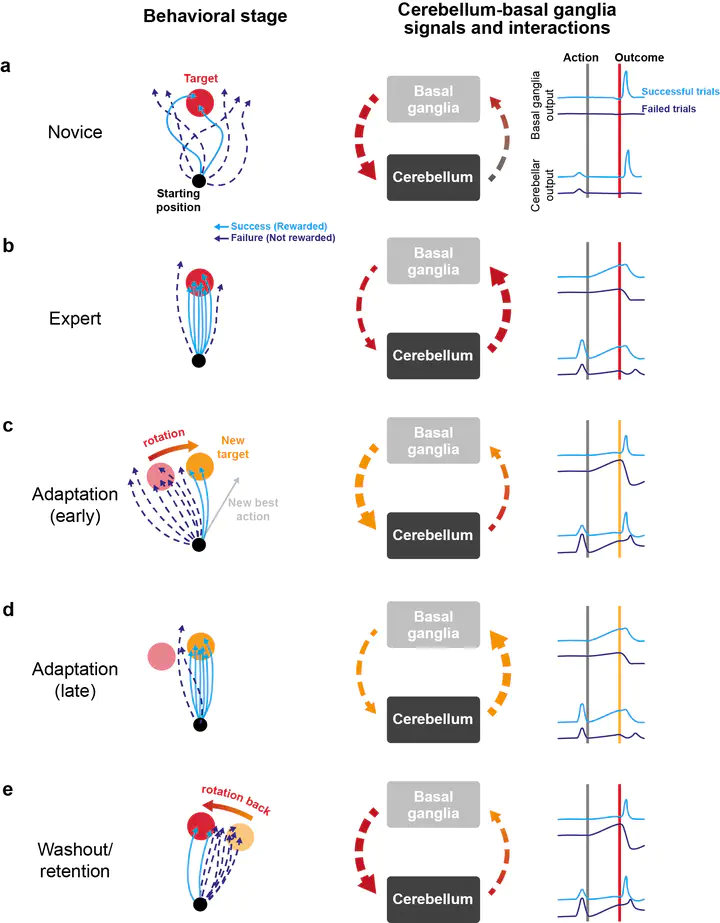
Abstract
The cerebellum has long been proposed to play a role in cognitive function, although this has remained controversial. This idea has received renewed support with the recent discovery that signals associated with reward can be observed in the cerebellar circuitry, particularly in goal-directed learning tasks involving an interplay between the cerebellar cortex, basal ganglia, and cerebral cortex. Remarkably, a wide range of reward contingencies—including reward expectation, delivery, size, and omission—can be encoded by specific circuit elements in a manner that reflects the microzonal organization of the cerebellar cortex. The facts that reward signals have been observed in both the mossy fiber and climbing fiber input pathways to the cerebellar cortex and that their convergence may trigger plasticity in Purkinje cells suggest that these interactions may be crucial for the role of the cerebellar cortex in learned behavior. These findings strengthen the emerging consensus that the cerebellum plays a pivotal role in shaping cognitive processing and suggest that the cerebellum may combine both supervised learning and reinforcement learning to optimize goal-directed action. We make specific predictions about how cerebellar circuits can work in concert with the basal ganglia to guide different stages of learning.